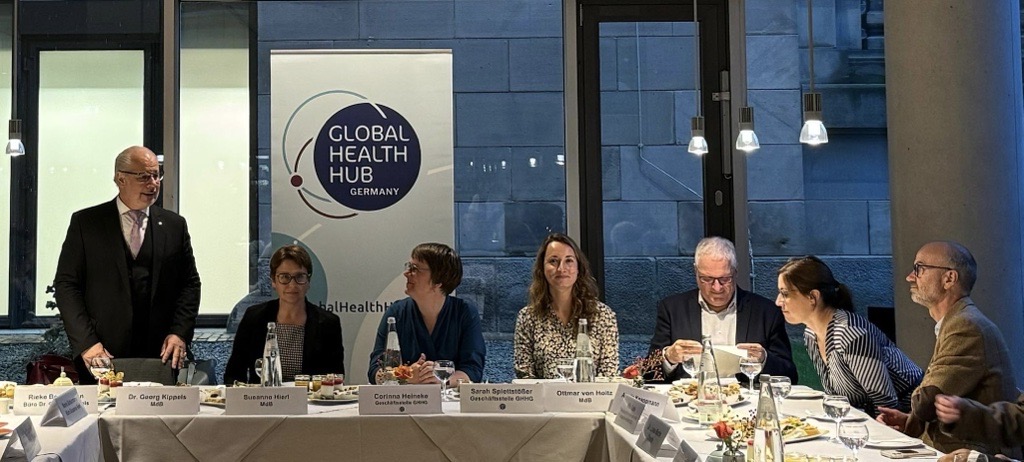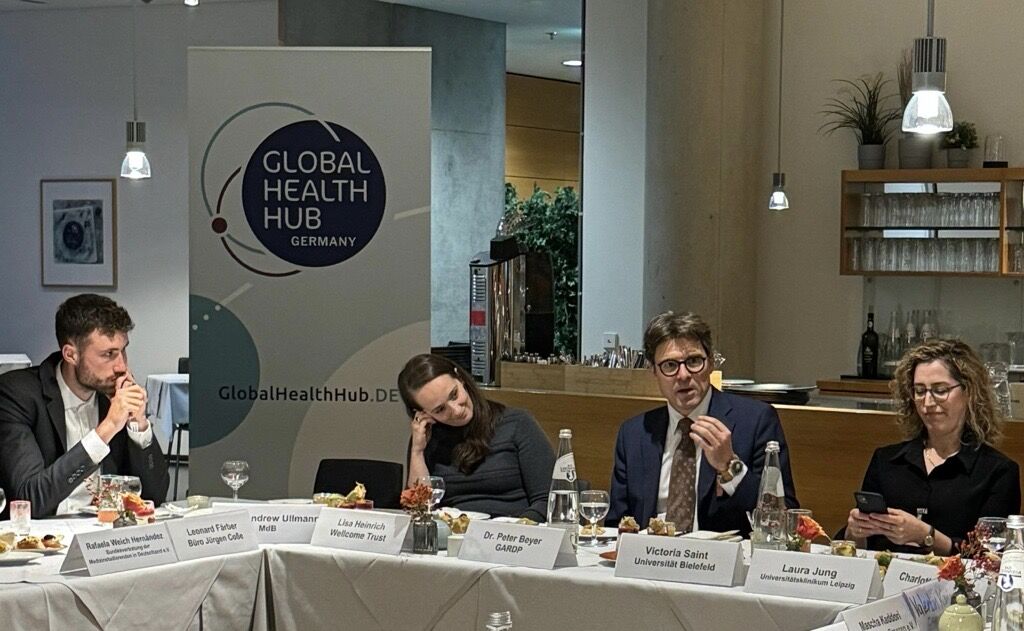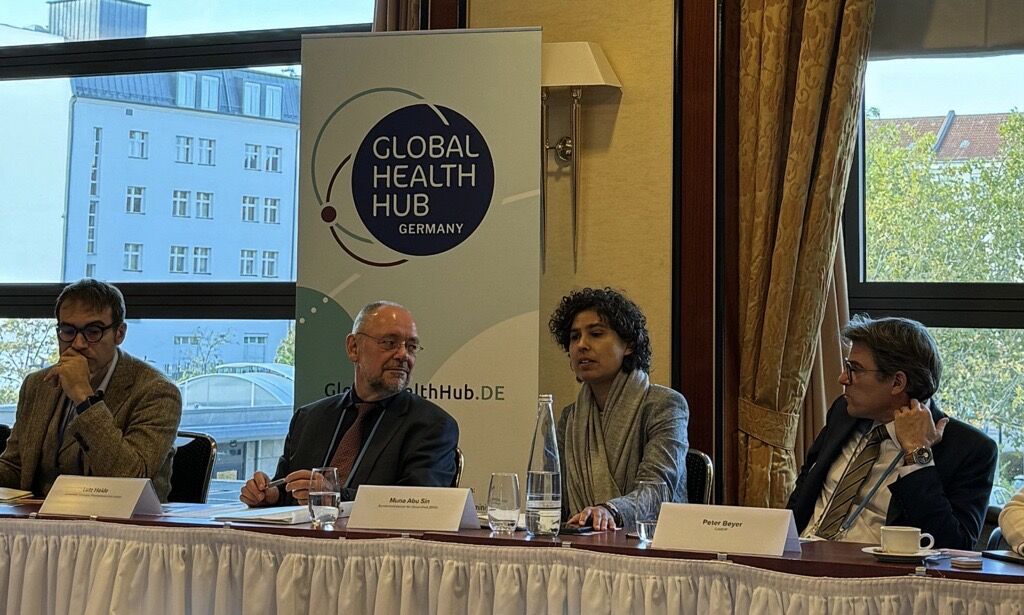Implications of the UN High-Level Declaration on Antimicrobial Resistance for Germany and its international cooperation

The Global Health Hub Germany and its community of practice on Antimicrobial Resistance (AMR) recently invited Members of Parliament, non-governmental actors, and representatives of the German Federal Government to delve into the implications of the UN High-level Declaration on AMR.
Under the patronage of Members of Parliament Susanne Hierl, Ottmar von Holtz, and Georg Kippels a parliamentary event in the Bundestag provided a space for dialogue with key organizations such as the Global Antibiotic R&D Partnership (GARDP), the German Institute of Development and Sustainability (IDOS), Abbott | Diagnostics, WaterAid, the Wellcome Trust, and Gavi, the Vaccine Alliance participated in the dialogue.
Discussions of the evening centered on several pressing issues, including the inequities in the health burden of AMR, research and development needs, strategies to incentivize innovation, and essential diagnostic requirements. However, beyond these critical needs, all participants were in agreement that the first mile of health service delivery must be addressed to effectively combat AMR from a preventive standpoint. This can be achieved through effective methods such as water, sanitation, and hygiene (WASH) practices and infection prevention and control measures.

At the recent World Health Summit in Berlin, Global Health Hub Germany members also engaged in dialogue with representatives from the German Federal Government, including Dr Muna Abu Sin, the AMR Ambassador from the Federal Ministry of Health, along with officials from the Federal Ministry for Economic Cooperation and Development, the Federal Ministry of Education and Research, and the Federal Ministry of Food and Agriculture.
Read our exclusive interview with Dr Muna Abu Sin on her role as AMR ambassador

We would like to thank all participants of the different discussions and our Hub Community on AMR for their valuable insights on this critical issue. The perspectives gathered during these debates will be compiled into an Impact Catalyst paper, scheduled for publication in November. We encourage you to stay tuned for updates as we continue to address the challenges of AMR.
In the meantime, read the following key strategies to combat AMR in Germany and internationally as well as systemic analyses by the Lancet on the Global Burden of Disease of AMR.
DART 2030 - German Antimicrobial Resistance Strategy
WHO Global Action Plan on Antimicrobial Resistance
Global burden of bacterial antimicrobial resistance in 2019: a systematic analysis
Global burden of antimicrobial resistance and forecasts to 2050 - The Lancet
Image: Gabriela Gilles